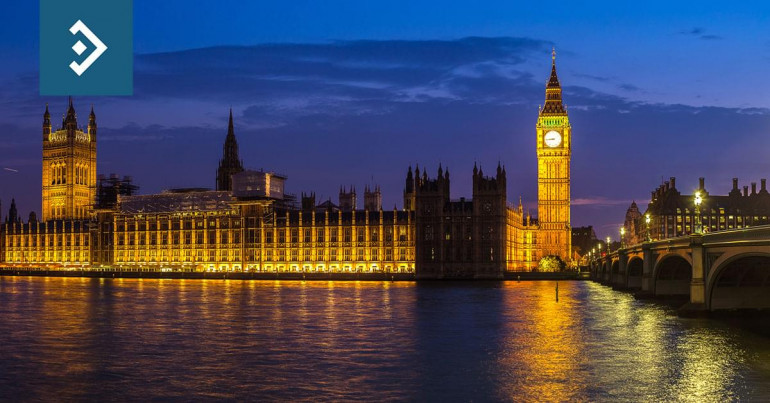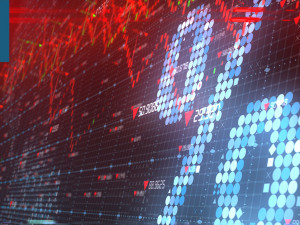
Borrowing costs skyrocketing
Morning mid-market rates – The majors
11th May: Highlights
- Johnson pledges growth over Support
- Risks remain, but Fed ready for all eventualities
- Recession to be ushered in by reliance on Russian energy
Business and household hit by rate increases
Boris Johnson then had to defend the programme from the inevitable criticism of the opposition parties.
Johnson freely admits that it is almost impossible for the Government to provide additional support to the families who are beginning to suffer from the continued cost of living crisis.
The emphasis of Parliamentary business for the next year will be on creating conditions for the country to be able to grow its way out of the coming slump which could turn into a recession.
Johnson and his Chancellor Rishi Sunak firmly believe that despite the current conditions with interest rates rising and energy bills soaring, that promoting growth which in turn will lead to the generation of jobs is the way to deal with the cost-of-living crisis.
Levelling up of activity, which will see regeneration of traditional employment black spots, is also a priority for the Government. Their promises in this area are what allowed it to perform moderately well in the recent local elections.
Economists and market commentators agree that it is likely that the economy will fall into recession between the fourth quarter of this year and the first quarter of next, but the characteristics of the slowdown will differ from the past.
It is unlikely that there will be mass unemployment as was seen in the seventies and eighties, since the main generator of economic output is now the services sector which accounts for 80% of GDP.
The Bank of England, in keeping with other G20 economies, had expected that they would be able to act in their own time in raising interest rates as the era of low rates and controlled inflation came to an end.
This is patently not the case as the Bank has hiked rates at each of its past four meetings and looks set to continue.
Rates remain below the level at which they will be considered to be neutral, and the Bank faces a tough time in considering when to stop, as using interest rates to tame inflation will also have the effect of slowing activity.
Interest rates being charged by banks to both commercial and retail customers have risen significantly and will soon begin to curtail business investment and will add to the cost-of-living crisis. Higher interest rates will also slow the increase in house prices, which have been one of the main drivers of domestic activity since the financial crisis.
The pound returned to negative territory yesterday, although technically, it does look possible that it is perhaps forming a bottom.
It reached a low of 1.2291 and closed at 1.2314.
Considering your next transfer? Log in to compare live quotes today.
Fears of slowdown can still be managed
That is what Christine Lagarde was asking for from ECB members recently.
Clearly, the period following the most recent meeting expired at the weekend, as there was a slew of comments which, despite supporting Jerome Powell’s announcements, showed that there are members of the FOMC who are more hawkish than the consensus.
There is still some debate about what constitutes the neutral fed funds rate and how far above that level interest rates will have to reach in order to have some effect in bringing inflation back into line.
It was mooted at the weekend that the neutral rate will be 2.5% but in order to tame inflation there may need to be two or possibly three further fifty basis point hikes above that.
One of the imponderables that is still to have an effect will be the reduction of the size of the Fed’s balance sheet.
A couple of months ago when the reduction was first announced, predictions were made that it would have the effect of two further hikes, but that is still conjecture, since it won’t begin until next month and will be set at $90 billion per month split between Government bonds and mortgage-backed securities.
Given the level of activity, some would say interference, that is expected from the Fed in the next few months, expiations of a recession remain but are still no one’s base case as is being seen elsewhere. However, the Fed will need to be conscious of the effect of monetary policy and be prepared to change course should the need arise.
The dollar index has taken a breather rather than correct significantly since the FOMC meeting. Yesterday it failed to make a fresh high for the year, reaching 103.97 but closed near the high at 103.92.
ECB president has eyes on Paris, not Brussels
Her predecessor was charged with and succeeded in saving the euro, an accolade the Mario Draghi will be given in perpetuity.
The most significant difference between Draghi and Lagarde is that the Italian is both a technocrat and a pragmatist. He sees a problem and immediately considers a solution.
On the other hand, Lagarde is more of a politician. She is prepared to wait to consider her next move, even if she is accused of prevarication.
Her actions or lack thereof over the past year have proved her motives perfectly. She would rather be accused of doing nothing than doing the wrong thing.
She has almost desperately clung to the idea of supporting the weaker nations of the Eurozone while almost completely ignoring rising prices due in no small part to the actions of the Central Bank as the economy emerged from the pandemic.
It is difficult to explain the relative lack of criticism she has received. Even the resignation of former Bundesbank President Jens Weidmann came and went with barely a whimper, while his replacement, Joachim Nagel, is more accepting of ECB policy than would have been expected from an inflation-conscious member of the German financial community.
Being a politician, Lagarde will bide her time while she considers her next move. Three appear to be two jobs that will pique her interest in the future. The first is the position currently held by Ursula von der Leyen as President of the European commission, but her more likely goal is the Presidency of her native country, France.
Current president Emmanuel Macron readily admitted following his recent victory in the Presidential election that it felt like a protest vote against his right-wing opponent Marine Le Pen. Over the next four years, France will become far more integrated and influential in Brussels and will most likely prove to be ripe for Lagarde to stand for election as President.
Meanwhile, despite her reticence, it is likely that the ECB will be forced to hike rates as early as July as inflation continues to rise, and the euro sinks towards parity.
Yesterday, it fell to a low of 1.0525, losing at 1.0528. Although there is no question that market participants will be considering long euro positions yet, the recent price action is pointing towards the closure of short positions before reinstating them on any corrective rally.

About Alan Hill
Alan has been involved in the FX market for more than 25 years and brings a wealth of experience to his content. His knowledge has been gained while trading through some of the most volatile periods of recent history. His commentary relies on an understanding of past events and how they will affect future market performance.”



